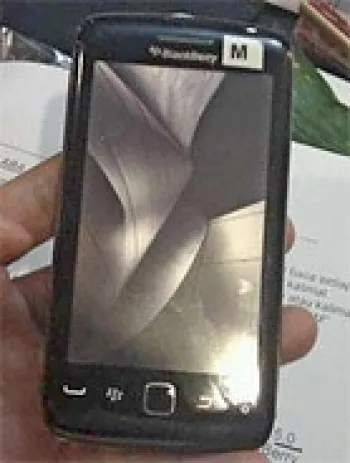BlackBerry 8700c Specs Prices Pros & Cons Revealed

Overview of the BlackBerry 8700c
The BlackBerry 8700c is a significant device in the history of mobile communications, widely recognized for its role in enhancing mobile email capabilities during the early 2000s. It was released in the fourth quarter of 2004 and quickly became popular among business professionals and enterprises for its efficient communication features and robust design.
Design and Build
The BlackBerry 8700c features a classic candy bar design, characterized by its QWERTY keyboard, which made typing emails and messages more efficient than on other mobile devices of its time. The device measures 110 x 69.5 x 19.5 mm and weighs 134 grams, making it relatively compact and lightweight, suitable for one-handed operation. The chassis, though sturdy, was sufficiently ergonomic, allowing users to carry the device easily.
Display
The device comes with a 2.6-inch screen, with a resolution of 320 x 240 pixels, delivering a pixel density of approximately 154 ppi. Though limited by modern standards, this display was adequate for the primary functions of email and text communication it was designed for. The screen supported 65K colors, providing a clear and readable display even in varied lighting conditions.
Keyboard
One of the most acclaimed features of the 8700c is its full QWERTY keyboard. BlackBerry was known for its tactile keys that offered great feedback, allowing for fast and accurate typing. This was particularly advantageous for those who handled substantial email correspondence throughout the day.
Performance and Hardware
Under the hood, the BlackBerry 8700c is powered by an Intel PXA901 processor clocked at 312 MHz. This processor, while modest by today's standards, was efficient for running the BlackBerry OS, which was optimized for multitasking and handling business-related applications. It came with 64 MB of internal storage and 16 MB RAM. The absence of a memory card slot limited storage expansion, but the internal capacity was sufficient for the device's intended use.
Operating System
The device runs on the proprietary BlackBerry OS, known for its strong focus on security and reliability. This operating system was a key selling point for the BlackBerry brand at the time, providing efficient multitasking and email integration, a highlight for business users.
Network and Connectivity
The BlackBerry 8700c supports GSM technology with quad-band capability (850/900/1800/1900 MHz). This wide band support ensured comprehensive coverage for users across the globe. It provided GPRS and EDGE data connectivity, allowing users to browse the web and manage emails efficiently. While it lacked Wi-Fi and GPS, it did support Bluetooth, which allowed for connectivity with headsets and computer synchronization.
Battery Life
Powered by a removable Li-Ion 1100 mAh battery, the 8700c offered a decent battery life for its time. It promised up to 450 hours of standby time and approximately 4 hours of talk time, which was adequate for a typical day’s usage among its target demographic. The battery performance particularly excelled in email and messaging efficiency.
Sound and Alerts
The device includes support for various alert types, including vibration and polyphonic/MP3 ringtones. While it lacks a 3.5mm audio jack, it does feature a built-in loudspeaker that facilitated hands-free calls and media listening.
Target Audience
The BlackBerry 8700c was primarily targeted at business professionals and enterprises looking for a reliable communication tool. Its secure messaging capabilities and efficient email support made it an essential device for corporate communications during the mid-2000s. The physical keyboard and intuitive OS appealed to users who required constant connectivity and multitasking abilities.
Conclusion
Despite being discontinued, the BlackBerry 8700c holds a distinguished place in mobile history as a device that transformed how businesses communicated on the go. Its robust features tailored for typing, email integration, and secure operating system made it an industry favorite among enterprises. Its influence is still felt today, as the demand for secure and efficient communication tools continues to grow in our increasingly interconnected world.
Key Features of BlackBerry 8700c
- GSM Technology with support for multiple 2G bands (850/900/1800/1900)
- Compact dimensions: 110 x 69.5 x 19.5 mm and lightweight at 134g
- QWERTY Keyboard for easy typing
- 2.6 inches display with 320 x 240 pixels resolution
- Powered by Intel PXA901 312 MHz processor
- 64MB internal storage with 16MB RAM
- Bluetooth connectivity available
- HTML browser support
- Removable Li-Ion 1100 mAh battery providing up to 450 h stand-by and 4 h talk time
BlackBerry 8700c Drawbacks
- No camera support.
- Lacks a memory card slot, limiting storage expansion.
- Display supports only 65K colors, which may result in lower quality visuals.
- No WLAN (Wi-Fi) support for internet connectivity.
- Does not have GPS positioning capabilities.
- No FM radio feature.
- No 3.5mm headphone jack, which limits audio accessory compatibility.
- Uses a proprietary USB connection, which may complicate accessory compatibility.
- Launched with an outdated BlackBerry OS version by today's standards.
- Discontinued device, meaning no official support or updates.

View Also
More Phones
All Rights Reserved +14266 Phones © Mobilawy 2025

























